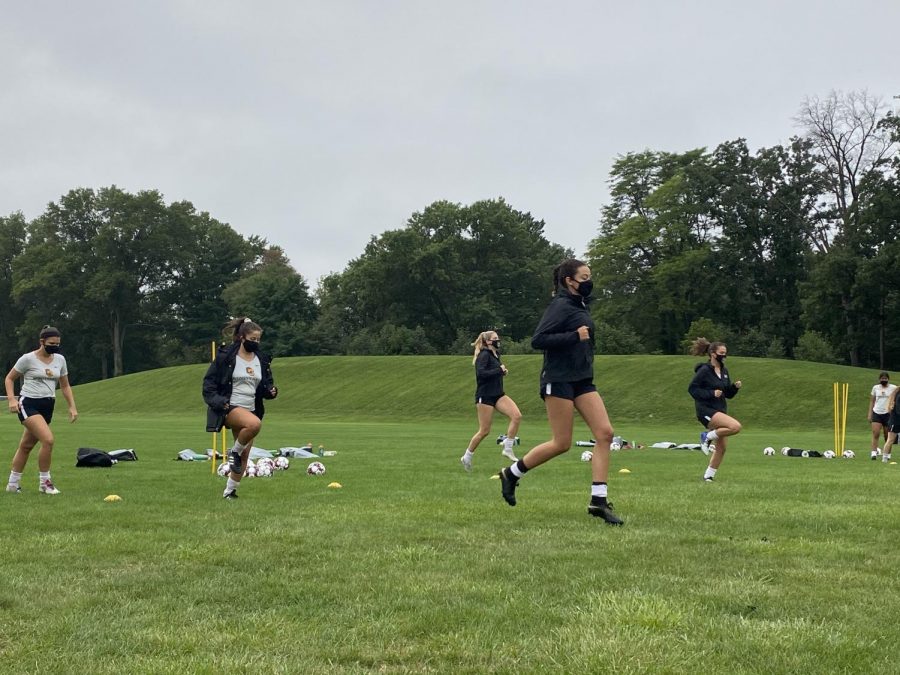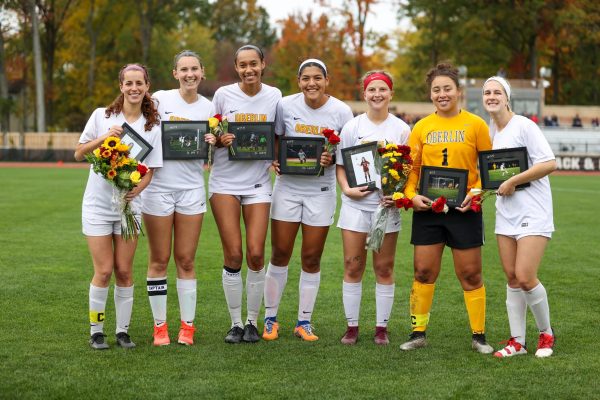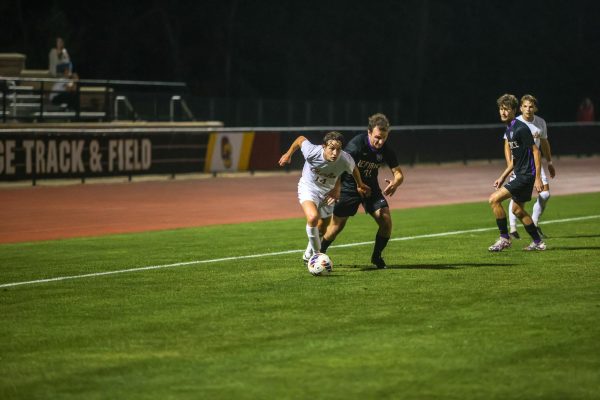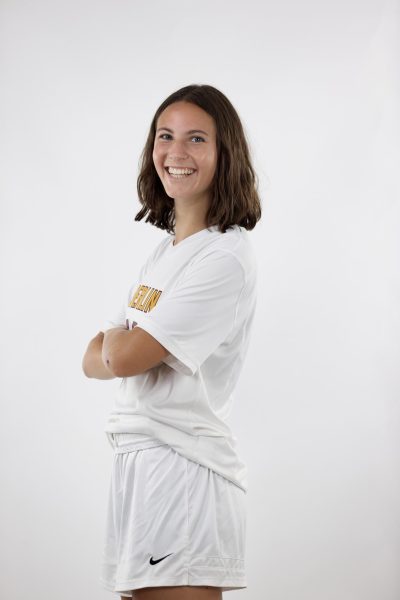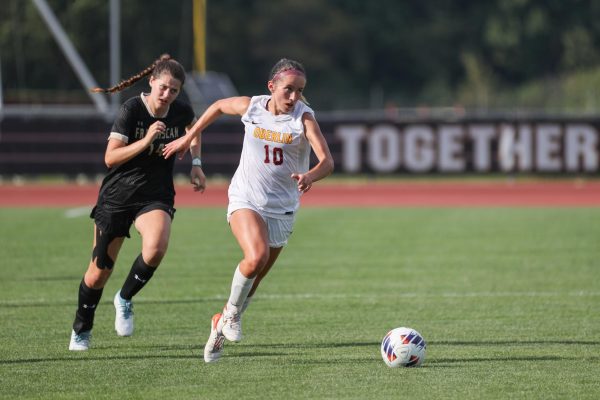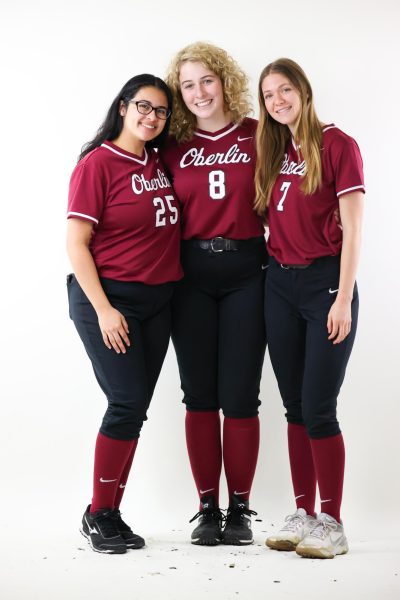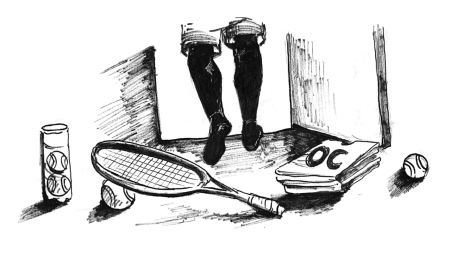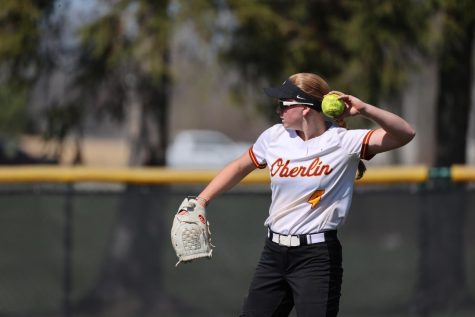Teams Develop New COVID-Safe Practice Routines
The women’s soccer team performs drills during one of its first socially distanced practices. Anisa Curry Vietze
Although fall athletic competitions have been canceled, most teams held their first in person practices this week. This year, without games and with new restrictions, students and coaches have to reconsider their athletic goals and what kind of experience they hope to create. Teams are in the early stages of developing new practice routines.
With the goal of ensuring that COVID-19 related safety measures were in place, teams implemented various changes to their usual practice routine. The varsity volleyball team practiced in groups of ten or fewer and all players and coaches wore masks.
“This week is phase one, which means there is no contact/opposed activities in practice and the groups must be kept separate,” Head Volleyball Coach Erica Rau wrote in an email to the Review. “For volleyball this week, we are doing individual practices. We are only lifting in groups of 10 or less and the groups cannot change. We are also sanitizing everything incessantly! Coaches have sanitizing kits that we bring to practice.”
Because practice often involves close contact, student-athletes must wear masks the majority of the time. .
“I think probably wearing masks during practice has been the biggest challenge for my team,” Rau wrote. “We have only had one practice but you can definitely tell they get gassed quicker so we have to take more breaks.”
Another noticeable change for athletes was the splitting up of teams into smaller groups.
“The biggest challenge for me is not being able to have my full team at practice at a time,” College third-year and varsity softball player Cat Moruzzi wrote in an email to the Review. “As a softball team, it is very important to have cohesion and trust in each other when on the field, so it is difficult to be in small groups and not be able to see all my teammates at one time.”
College fourth-year and varsity women’s soccer player Sydnie Savarese seconded this and said that she misses the energy of group practices.
“The most difficult part of the change in practices and lifts is the lack of camaraderie that comes with a team sport,” she wrote in an email to the Review. “I wish I could practice with everyone and get to know the first-year class better. Practices are the best when we all play together; I’ll miss that a lot.”
Though there have been many changes, coaches and athletes are working together to implement rules and communicate boundaries that players are comfortable with. According to Moruzzi, decisions regarding COVID-19 safety were made with players in mind to ensure their safety and comfort.
“There are definitely some aspects of the rules that Coach has set in stone for us, but this is a learning period for all of us, so she definitely takes input from us players,” Moruzzi wrote. “Coach Sara Schoenhoft has been very considerate about this whole process and wants us to be comfortable on the field, so she asks us if we need to spread out more so we can breathe for a second and if we as a group would be more comfortable wearing masks to protect our health — even at distances of 40 feet or more in the outfield.”
Athletes who do not feel comfortable going to practice, or are not on campus, still have opportunities to practice and connect with the team.
“I can’t speak for all teams but we have a new team standard where if they are not comfortable at any time at practice or coming to practice they can opt-out with no questions asked,” Rau wrote. “They also can opt-out if they engaged in behavior that could potentially put the rest of the team at risk. For my players that aren’t on campus, we are doing weekly virtual meetings to try to keep everyone connected and engaged.”
Despite the many difficulties of a canceled fall season, athletes are making the best of the situation and have been able to plan socially-distant events outside of practice.
“Our team tries our best to stay connected even during these unprecedented times,” Savarese wrote. “We’ve gathered in small groups and played soccer, tennis, or other soccer-related games. We did Zooms bi-weekly throughout the summer. As we speak, the seniors are planning a socially-distant team bonding activity.”
In spite of Savarese losing her senior season, she is still looking forward to finishing up her soccer career at Oberlin.
“Amidst the craziness, I’m so excited to wrap up the senior season with my [Oberlin College women’s soccer] family,” she wrote. “I’m looking forward to making this season as fun and competitive as possible! Hopefully, we can have a makeshift senior day and end on a positive note. I love my teammates so much and I’m grateful for the positive environment that we’ve created thus far!”


